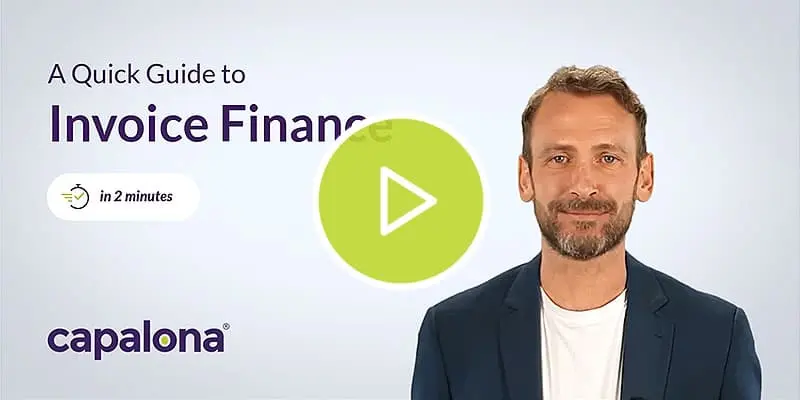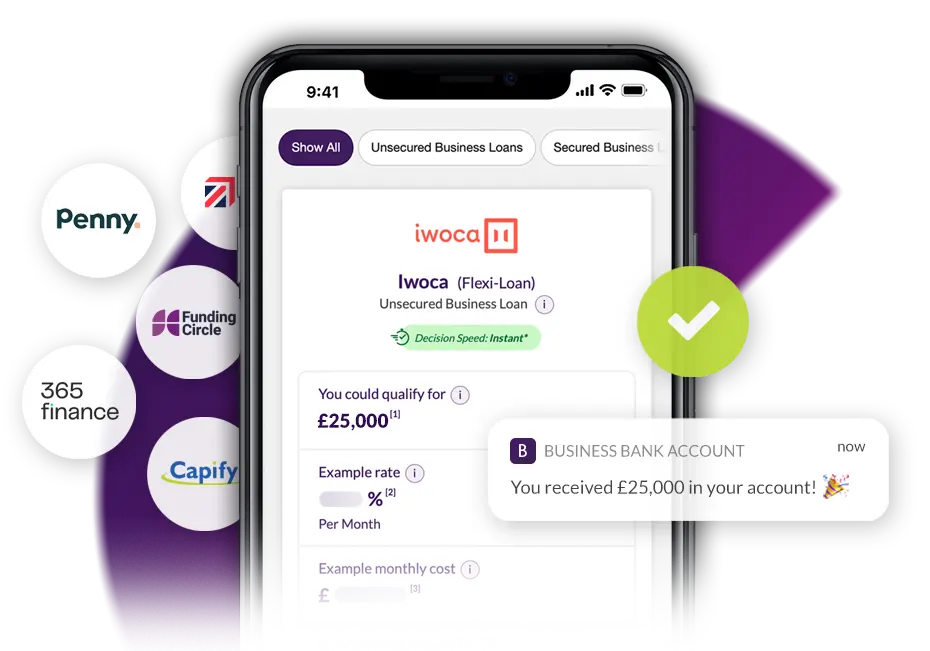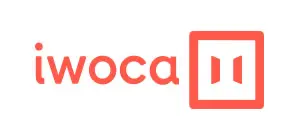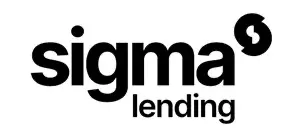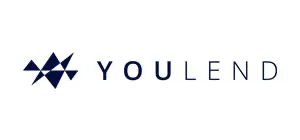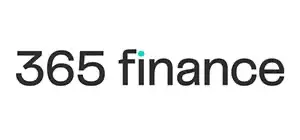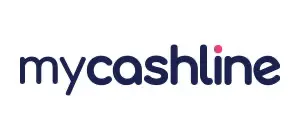Invoice Finance
Having large amounts of cash tied up within your debtors can substantially halt your SME business growth. An invoice finance solution will reduce lengthy payment terms and help unlock up to 95% of the cash tied up in your unpaid invoices.
- Compare a wide range of lenders and rates
- Check your eligibility in minutes
- Find out how much you could borrow
It's fast, free and won't affect your credit score
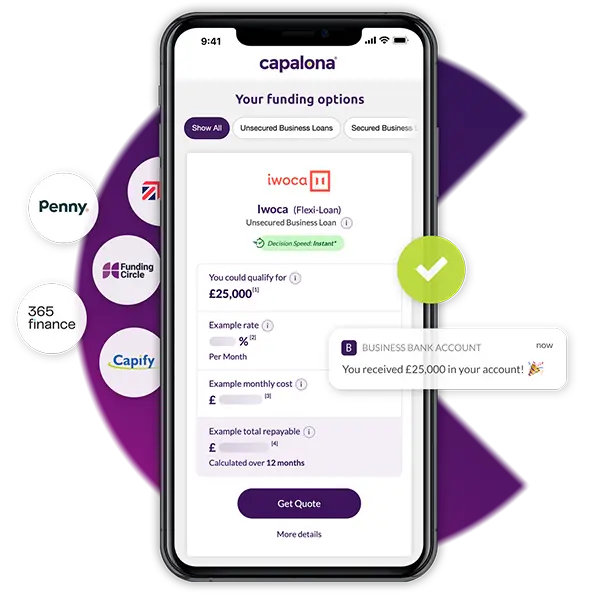

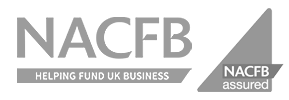



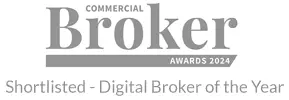
- What is invoice finance?
- How does invoice finance work?
- How much does Invoice Financing cost?
- Invoice finance calculator
- What are the different types of invoice Finance?
- What is the difference between invoice factoring and invoice discounting?
- What is recourse and non-recourse invoice finance?
- What are the advantages of invoice finance?
- What are the disadvantages of invoice finance?
- Can any business get invoice finance?
- How to choose an invoice financing company?
- Is invoice finance right for your business?
- Is invoice financing a good idea?
What is invoice finance?
An invoice finance facility enables you to release cash tied up in outstanding customer invoices. This means you don’t have to wait weeks or months for invoice payment. Invoice finance is suitable for businesses that regularly invoice other businesses (B2B) for their goods or services.
Having a large amount of cash tied up within your debtors can substantially halt your SME business growth, Invoice Finance is a simple solution that will help unlock the cash that is tied up in your unpaid invoices.
Business invoice finance is an umbrella term that describes the different types of invoice funding available to businesses, including invoice factoring, invoice discounting and selective invoice finance. This asset-backed funding solution is a fast, flexible and convenient way to manage cash flow and get paid quickly for completed work.
How does invoice finance work?
Invoice finance works by using unpaid customer invoices to indicate money that is owed to your business. Rather than waiting for customers to settle an invoice, the lender will effectively buy your invoice(s) at a discounted rate, helping you avoid the usual payment terms. You could get an advance up to 95% of the invoice value upfront, usually within 24 hours.
With invoice funding, your invoicing method doesn't need to change, allowing you to carry on with business as usual.
- Invoice customers as usual for completed work and send the invoice details to the provider.
- The first instalment, up to 95% of the invoice value, is paid out to you straight away.
- Depending on the type of invoice finance you agree to use, credit control and chasing payments can either be handled by yourself, or by the provider.
- The final instalment is then paid to you on receipt of the customer’s payment, minus any fees and service charges.
How much does Invoice Financing cost?
As a guide, invoice financing fees and charges usually cost between 1% - 5% of the invoice value. This is known as the discount rate or factor rate. This can vary based on the amount and value of the invoices processed each month.
Typically, companies processing a small number of high-value invoices will receive a more competitive rate than those issuing lots of small-value invoices.
The cost of invoice finance will vary depending on a variety of complex factors including your business type, customer creditworthiness, how much you invoice, the value of the invoices, and what invoice finance facility you choose to use.
You may also incur a service charge or standing charge that can range anywhere between 0.5% to 3% or more of your annual turnover. This fee covers the administration relating to your account, such as credit collection and management.
Here is a typical cost example:
Construction Company Ltd has completed work for a customer and has raised an invoice for £10,000, which has a payment term of 30 days. The business needs money quickly to help pay for the necessary resources for the next project and turns to invoice financing.
The business agrees with the lender that they will get 95% of the invoice value upfront with a discount rate of 3%. In this case, Construction Company Ltd will receive £9,500 upfront, and the lenders’ fee would be £300.
The remaining balance of £200 will be paid out to Construction Company Ltd as soon as the customer settles the invoice in full by 30 days.
- Invoice value = £10,000
- Receive 95% upfront = £9,500
- Final payment = £200 (due when a customer makes full payment)
- Total fees at 3% = £300
Construction Company Ltd would receive a total of £9,700 from the £10,000 raised invoice.
Invoice finance calculator
Our easy-to-use invoice finance calculator helps you find out the estimated fees and how much you could raise with invoice funding:
Your results
Advance amount
£0 (%)
Then
£0*
Estimated Fees
£0
* Will be paid to you when your client has paid the invoice in full and within the agreed invoice term.
This calculator is intended for illustration purposes only, and exact payment terms should be agreed with a lender before taking out a loan.
What are the different types of invoice Finance?
There are three main types of invoice financing:
Invoice Factoring
Using invoice factoring, UK businesses can access up to 95% of the cash tied up in outstanding invoices. With this option, you effectively sell your invoices (accounts receivable) to a factoring company for an agreed amount.
Unlike invoice discounting, the provider will take ownership of your credit control and ensure outstanding invoices are repaid on time. Having a factoring company to act as your credit controller removes the time-consuming task of chasing payments and allows you to focus on your business.
It’s worth noting that factoring is not necessarily confidential; many providers do not offer a white-label service when speaking directly to your customers.
Invoice Discounting
With invoice discounting, you could still unlock up to 95% of the cash tied up in unpaid invoices, the difference is that you will be responsible for chasing the repayments. It is therefore completely confidential; as you manage your credit control, customers will not know that you are using this facility.
For more advantages and disadvantages of invoice discounting see our related post here.
Selective Invoice Finance
Selective invoice finance, also known as single or spot invoice financing, works by a business selling a single invoice to a third-party funding provider as and when needed, to release tied-up funds quickly.
With other invoice finance facilities, companies are required to submit their entire sales ledger, which may prove challenging for small, seasonal businesses. This is not the case with selective invoice finance, as individual invoices can be factored as required based on cash flow needs. This is a funding-only solution, meaning you are required to manage your credit control.
To summarise, all three types allow you to sell your invoices and release up to 95% of the value, the only difference is that invoice discounting is 100% confidential and it’s you as a business who remains in control of all invoice administration and debt management. This is great for businesses that wish to keep the fact that they use this service private and confidential.
What is the difference between invoice factoring and invoice discounting?
The main difference between invoice factoring and invoice discounting is that factoring includes credit control services, meaning the lender takes control of the debtor book and manages it on your behalf.
Invoice discounting companies, on the other hand, let you maintain control of your sales ledger, which keeps the facility confidential from customers.
Both of these facilities are examples of asset-based lending that let you turn your unpaid invoices into instant working capital.
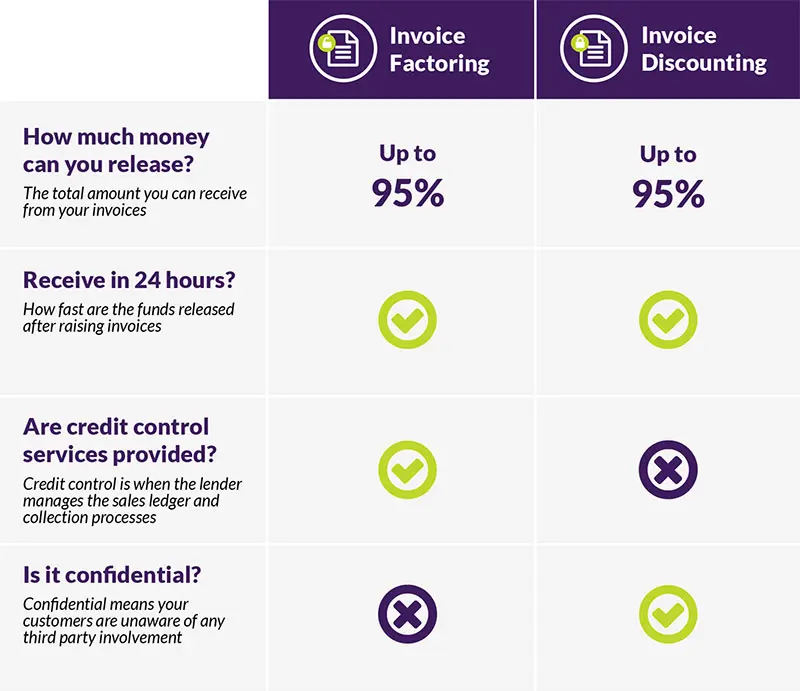
What is recourse and non-recourse invoice finance?
Recourse invoice finance means that you get no bad debt protection. For example, if the debtor pays too late, or fails to pay the invoice, then your company will be liable to repay the provider the full invoice advance value, including fees. Recourse factoring agreements require your business to buy back the unpaid bills, increasing the overall risk.
Non-recourse invoice finance means you do get protection against bad or late debts. This safeguards your business and the lender essentially takes on the bad debt risk from customers.
What are the advantages of invoice finance?
There are several advantages to choosing invoice finance for your business. Not only does it offer an incredibly fast and flexible way to manage your cash flow, it also enables companies to take on more client work without overstretching working capital. Some of the main benefits of invoice finance include:
- Improves your cash flow - It helps alleviate cash flow issues by bridging the gap between paying your suppliers and receiving money from customers.
- Receive up to 95% of unpaid invoice value - You can typically expect to release up to 95% of the funds tied up in your invoices.
- Fast funding - Invoice finance companies offer very quick access to cash. Money can be released within 24 hours after receiving invoices.
- Sell one or multiple invoices - Depending on the type of facility; you can choose to sell one or multiple invoices and decide whether you or your finance provider will manage your credit control.
- No hassle of chasing payments - Giving the lender access to fully manage your sales ledger can help free up your time, leaving you to focus on your business, not chasing invoices.
- Confidential service available - You can have the option to manage your sales ledger as normal without your customers knowing.
To find out for free if you qualify for invoice finance, please apply online now for a no-obligation quotation.
What are the disadvantages of invoice finance?
Invoice finance does have its drawbacks, they include:
- Designed for specific businesses - Only suitable if you provide goods or services to other businesses (B2B), as opposed to the general public (B2C).
- Your customers may be aware - If you choose a facility, your customers will be aware that you use a facility as lenders will be managing your sales ledger. This could potentially harm your relationship with your customers.
Can any business get invoice finance?
To qualify for invoice finance, you must trade predominantly by invoicing other businesses for products and services.
- Company based in the UK
- Limited, partnership and sole traders accepted
- A minimum turnover may be required for some lenders
If you do not meet these criteria, we can still help you access the finance you need! Learn more about our range of business finance options and how we can help you find the right funding solution for your business.
There are many lenders who offer invoice and ABL finance - Bibby, Novuna, Close Brothers and Aldermore to name just a few. We work with our own select panel of lenders which offers our customers a wide range of funding options.
How to choose an invoice financing company?
Here at Capalona, we work closely with a select number of reliable invoice finance providers. With so many options available, it can be tricky knowing which invoice finance solution is right for your business - which is where we come in.
Over the last few years, we have helped find SME invoice finance for countless small businesses across the UK. As members of the Federation of Small Businesses, we are trusted to connect you to the right providers to help your business grow.
We know that unpaid invoices pose a major risk to business survival, with 1 in 5 UK company insolvencies attributed to late payments. Because of this, we are on a mission to help businesses tackle this issue head-on.
The benefits of choosing Capalona include:
- We work with a panel of reputable invoice finance providers
- See which invoice finance providers you are eligible for
- Find out how much you could advance against your invoices
- Our business funding matching service is 100% free, and applying is quick and easy
- Compare invoice finance options online and request quotes from the providers you choose
What our experts say
"Having an invoice finance facility in place allows business owners to take advantage of immediate working capital from raised invoices that might otherwise take days or months to receive. It becomes a valuable part of their internal business cash flow.
Here at Capalona, we connect you to the UK leading invoice finance providers so you can compare multiple quotes in your own time."

Is invoice finance right for your business?
Invoice finance lends itself as a product to companies that invoice other businesses for their goods and services. Here are some examples of SMEs and specific industries that commonly benefit from invoice financing services:

Recruitment invoice finance
Recruitment agencies have to manage to pay temporary workers and contractors while waiting for the settlement of invoices. Back office administration such as timesheet management and other specific administration is vital to running a successful recruitment business.
Invoice finance for the sales ledger can be critical for recruitment companies' success. It is a flexible and confidential service and can be short-term or long-term depending on what you need. By utilising recruitment invoice finance, you can concentrate on the day-to-day running of your business without the financial distraction.
Recruitment finance can help you release up to 100% of the cash in your invoices with no long term contracts and a simple fee structure which is easy to understand. The service is flexible and can be a one-month rolling contract.

Invoice finance for design and marketing agencies
Web design agencies, advertising, design and marketing companies all suffer at some point when it comes to cash flow. The design industry is hindered by late-paying clients - almost to the point of it being normal practice. Well, it shouldn’t be, and your small business doesn’t have to suffer as a consequence of late-paying customers. Whether you are a freelancer, sole trader or you are a larger agency with staff to pay, a late-paying client can knock your cash flow for six.
You may need to pay staff or suppliers such as printers or hosting costs. And, like so many other agencies you have to juggle chasing late payers while still producing work and keeping the very same clients happy. This is where invoice finance can help you when cash flow becomes tight. By ‘selling’ an invoice to an invoice finance lender you can access essential funds within a day or two. The results of this are clear. You keep your business ticking along which allows you to concentrate on client work and your next important pitch.
Some design agencies adopt invoice finance and full ledger management. This service is when the lender takes control of chasing invoices on your behalf while maintaining a high professional rapport.

Invoice finance for manufacturing and engineering companies
Ultimately it comes down to steady cash flow when running a manufacturing or engineering business. Paying your suppliers on time can mean no interruption to your production, and in some cases, it gives you a better opportunity to negotiate better prices with your suppliers.
Unfortunately, larger companies and SME’s often put the smaller firms under financial pressure when it comes to paying invoices. You can take control and engage with the services of an invoice finance company to help improve cash flow to where it needs to be.
Regardless of international territories, or geographical areas where communication can be slightly problematic, we can help you overcome any financial logistics.

Invoice finance for construction firms
The construction sector is one of the industries most at risk of delayed and unpaid invoices. Recent research found that late invoice payment now poses the single greatest threat to construction firm survival, with over 75% of UK construction businesses being forced to wait at least one month beyond their agreed contract terms for payment.
Issues with cash flow can impact the whole of the construction supply chain, causing a domino effect for all firms working in the industry. For this reason, construction finance in the form of invoice finance remains crucial in helping businesses maintain working capital, cover temporary shortfalls and ultimately ensure business survival.
Is invoice financing a good idea?
Invoice financing can be a smart solution for businesses needing to boost cash flow without waiting for customers to pay their invoices. By advancing up to 95% of the invoice value, it provides quick access to funds, helping cover essential expenses or invest in growth. This makes it especially useful for businesses dealing with long payment terms or seasonal income fluctuations.
However, as with any financial product, it’s important to assess the costs and terms carefully to ensure it aligns with your business needs. Get started with Capalona and compare invoice finance today.
Adrian T
5/5
Amazingly fast, efficient service, minimal paperwork. So much faster than my business bank of twelve years.

